The problems of storage of material evidence by the prosecution were outlined in the UNBA
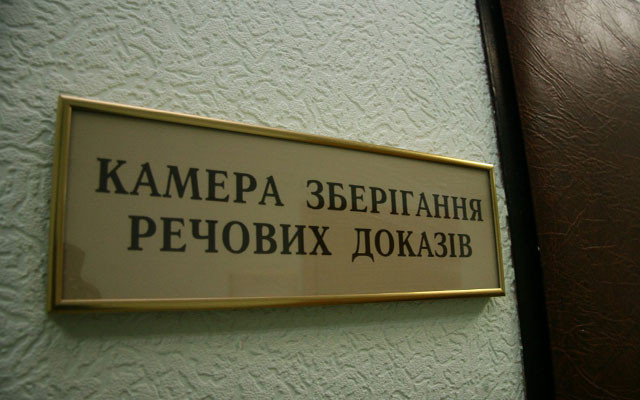
Storage of material evidence by the prosecution, its sale, technological processing, destruction, expenses related to its storage and shipment, safety of temporarily seized property and seized property...
Problematic issues in these matters are studied as part of legal monitoring by the Directorate of Justice and Criminal Justice of the Ministry of Justice. In order to find solutions, they have asked the National Bar Association of Ukraine to provide relevant proposals.
The Ministry of Justice notes that there are questions about clarifying and regulating the place of storage of: weapons (weapons, ammunition), military equipment, munitions, and their parts used in the armed aggression against Ukraine; flammable substances, including fuels and lubricants; funds in national and foreign currency, payment documents, and the regulation of the rules for the preservation of digital evidence. And law enforcement agencies are raising the issue of the need to amend the Instruction on the Procedure for Seizure, Accounting, Storage and Transfer of Material Evidence in Criminal Cases, Valuables and Other Property by the Authorities of Inquiry, Pre-trial Investigation and Court.
In terms of clarifying and regulating the place of storage of weapons, the UNBA believes that special sites should be used to preserve this category of material evidence, similar to the storage of cars and other equipment. In this case, it is necessary to provide a clear mechanism for their transfer to the state after they lose the status of material evidence for processing into metal. Records of such material evidence should be kept, including weight categories, to understand how much metal the state will receive after the investigation and litigation are completed.
With regard to flammable substances, including fuels and lubricants, it is clear that before this category of evidence is deposited for safekeeping, an expert examination must be conducted to determine its characteristics. If such evidence contains substances relevant to the investigation, samples are then taken for possible expert examination. It should be noted that fuels and lubricants do not contain individual characteristics, and therefore can be transferred for storage by volume to the relevant organizations that trade in these substances and have storage facilities. If it is necessary to return these substances to the owner, a certain amount is returned to the owner.
According to part 6 of Article 100 of the CPC, material evidence that does not contain traces of a criminal offense in the form of items, large batches of goods, the storage of which due to bulkiness or other reasons is impossible without undue difficulty or the cost of providing special storage conditions is commensurate with their value, as well as material evidence in the form of goods or products that are subject to rapid deterioration
1) returned to the owner (legal owner) or transferred to him/her for safekeeping, if possible without prejudice to criminal proceedings;
2) transferred with the written consent of the owner, and in the absence of such consent, by decision of the investigating judge or court for sale, if possible without prejudice to the criminal proceedings;
3) destroyed with the written consent of the owner, and in the absence of such consent - by decision of the investigating judge or court, if such goods or products subject to rapid deterioration are in an unusable condition;
4) transferred for their technological processing or destroyed by the decision of the investigating judge or court if they belong to items or goods withdrawn from circulation, as well as if their long-term storage is dangerous to human life or health or the environment.
Physical evidence is recorded by photographing or video recording and described in detail. If necessary, a sample of material evidence sufficient for its expert examination or other purposes of criminal proceedings may be preserved.
Cash and payment documents should definitely be stored in safe deposit boxes in state-owned bank branches. CDs, flash drives and memory cards are used to store digital evidence. Although they are supposed to be stored in designated places, in practice they are stored in case files or in investigators' offices, resulting in loss or damage. Computer equipment and mobile phones (the most acute problem) should be seized in exceptional cases when they contain traces of a crime, otherwise information should be recorded. Establishing control over the validity of the seizure of such equipment will reduce the budgetary burden and protect human rights to property.
The UNBA also emphasized the need to improve the mechanism for seizing evidence, strengthen responsibility for its preservation, and establish control over the inspection and retention of things when they have lost their value as material evidence.
A separate problematic issue with the storage of physical evidence, according to lawyers, is that after the seizure of temporarily seized property is canceled or the property is returned to the owner or possessor, there are cases when it is necessary to spend time and resources to establish its location. After all, investigators' decisions on recognizing things and documents as material evidence do not contain information about the location of things and the persons responsible for their storage. This gap can be eliminated, for example, by amending Article 110 of the CPC. In this case, the decision to recognize property as material evidence should be handed (sent) to its owner or possessor.
The full text of the UNBA's proposals, which were sent at the request of the Ministry of Justice, can be found here.
Popular news
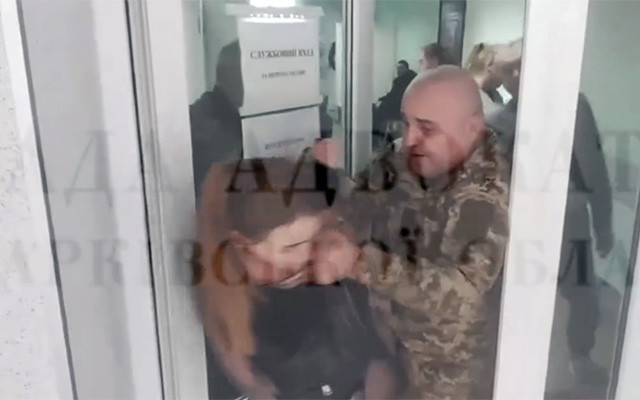
Advocacy
Beating of a lawyer in Kharkiv: what is known about the incident in the premises of the MME
When the lawyer began to record violations of her client's rights in the premises of the military medical commission, the defender was pushed out of the room by physical force and her belongings were thrown away. The Verkhovna Rada became interested in the incident, and the Ombudsman took the case under his personal control.
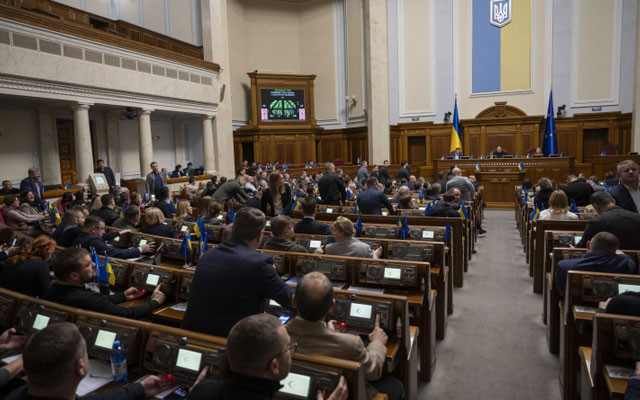
Advocacy
The Verkhovna Rada proposes to grant lawyers a deferral from the draft (criteria)
The mobilization of lawyers has devastating consequences for the system of professional legal aid, as it violates the legal rights and interests of hundreds of thousands of citizens and legal entities to whom male lawyers provide professional legal aid.
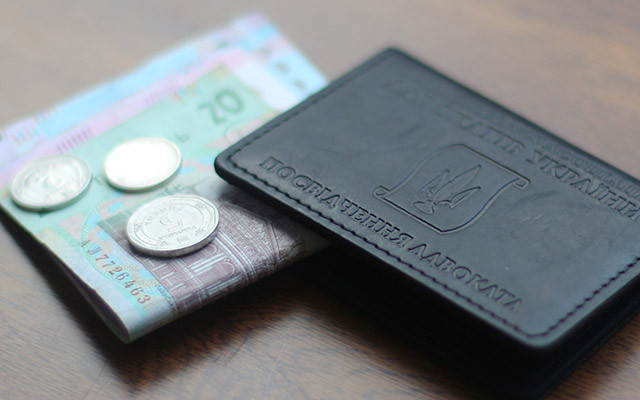
Advocacy
Exemption from payment of fees in 2025: what advocates should know
The Bar Council of the region and the Ukrainian National Bar Association may, upon the applications of advocates submitted by December 31, decide to exempt, reduce, or defer the payment of the annual fee for the implementation of the bar self-government.

Advocacy
Updating the jury trial model: pro or con?
The new model of jury trial, which was recently approved as a basis by the Verkhovna Rada of Ukraine, is causing a lot of controversy in the professional community. After all, there are reasonable doubts about its compliance with Ukrainian realities.
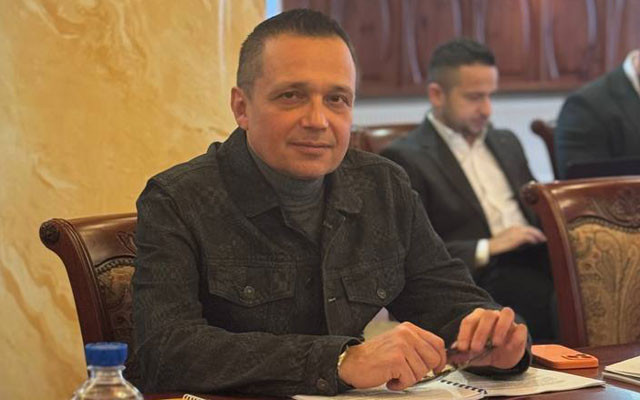
Advocacy
The annual fee of an advocate in 2025: The BCU has changed the distribution
In 2025, the annual contribution to the bar self-government will continue to be one subsistence minimum for able-bodied persons (UAH 3,028, according to the Law on the State Budget). At the same time, its distribution will change.
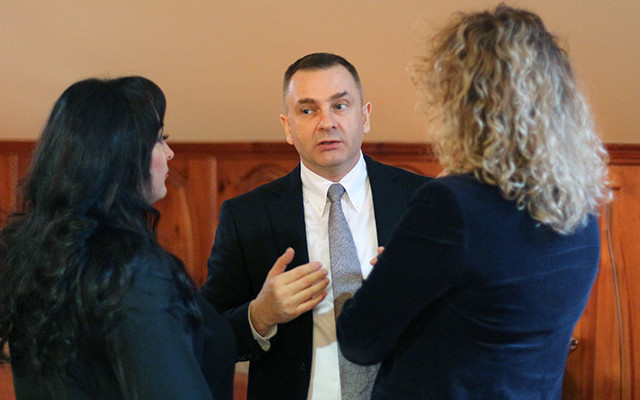
Advocacy
Officially: there are more than 70 thousand advocates in Ukraine
Recently, the number of advocates in our country has exceeded 70 thousand. To be more precise, as of today, the Unified Register of Advocates of Ukraine contains information about 70152 attorneys.

Advocacy
European integration and advocacy: development of the institution through constructive dialogue
Today, unfortunately, there are many pseudo-experts who are confidently undertaking to reform the institution of the bar. At the same time, they are unwilling to study the issue from the inside and deliberately ignore the disastrous consequences of their initiatives for the country.
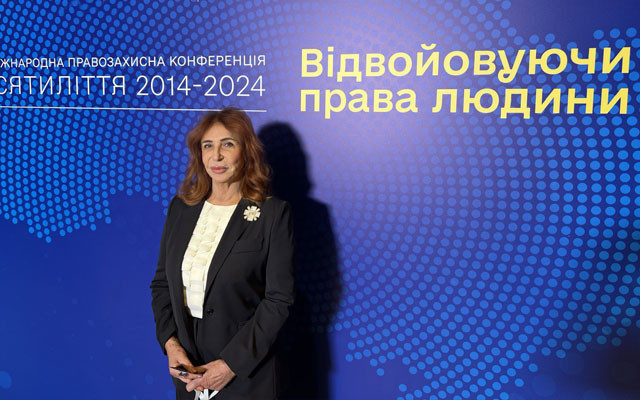
Advocacy
Some TCCs have become «territories without advocacy» - Lidiya Izovitova
If the prosecution does not like the position of the lawyer, it resorts to pressure, including through territorial centers for recruitment and social support. Physical pressure, accusations of treason, mobilization - all this can be a reaction of the authorities to an active defense.
Publications

Ihor Kolesnykov A BRIEF SUMMARY REGARDING THE APPLICATION OF THE ORDER ON EXTENDED CONFISCATION IN LATVIA REGARDING FINANCIAL ASSETS OF…

Valentyn Gvozdiy WORKING IN A WAR ZONE

Lydia Izovitova Formula of perfection

Sergiy Vylkov Our judicial system is so built that courts do not trust advocates

Iryna Vasylyk Advocacy in the proclamation of Independence of Ukraine

Oleksandr DULSKY When we cross the border of the Supreme Anti-Corruption Court, we get into another department of the National Anti-Corruption…

Vadym Krasnyk The UNBA will work, and all obstacles and restrictions are only temporary inconveniences

Lydia Izovitova Interview with Lydia Izovitova on the occasion of the 8th anniversary of the founding of UNBA: We are the voice of t…
